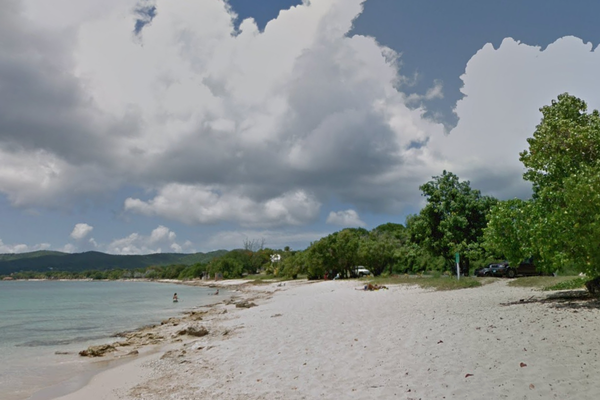
The Queensland poet Sarah Holland-Batt has won the $60,000 Stella prize for her poetry collection The Jaguar.
It is the second year running a poet has taken out Australia’s pre-eminent award for women and non-binary writers, in as many years that poetry has been eligible for the prize. Holland-Batt’s win follows Evelyn Araluen’s victory last year for her debut collection Dropbear.
Holland-Batt’s father’s diagnosis with Parkinson’s disease and his death two decades later forms the spine of her third collection, with the Stella prize chair, Alice Pung, praising the collection as a demonstration of Holland-Batt’s capacity to write about death “as tenderly as we’ve ever read about birth”.
“Her imagery is unexpected and unforgettable, and often blended with humour,” Pung wrote in her judge’s statement. “This is a book that cuts through to the core of what it means to descend into frailty, old age, and death. It unflinchingly observes the complex emotions of caring for loved ones, contending with our own mortality and above all – continuing to live.”
Two elegies set in the moments immediately before and after death serve as bookends in The Jaguar: in her poem The Gift, Holland-Batt describes her father, then having lived 17 years with the illness, holding the gift of death in his lap – “small, oblong, wrapped in black”:
I want to give him his present but it is not mine
to give. We sit as if mother and son on Christmas Eve
waiting for midnight to tick over, anticipating
the moment we can open his present together –
first my father holding it up to his ear and shaking it,
then me helping him peel back the paper,
the weight of his death knocking,
and once the box is unwrapped it will be mine,
I will carry the gift of his death endlessly,
every day I will know it opening in me.
Holland-Batt, who is the professor of creative writing and literary studies at the Queensland University of Technology and chairperson of Australian Book Review, is known outside literary circles as an outspoken advocate for aged care reform, something she became involved in as a result of her father’s illness.
In 2019 she made national headlines when she gave evidence at the aged care royal commission, detailing the neglect and abuse her father suffered in a Queensland nursing home.
Speaking to the Guardian prior to accepting the award on Thursday, Holland-Batt said giving evidence at the royal commission was a far greater challenge than writing The Jaguar.
“In a way it was much more exposing than writing poems about him,” she said. “Poems become an artefact of language, they become something separate from your life and your feelings. They do not tell directly what happened in exactly the way it happened. So [testifying] was a more difficult decision … but unless people do share their stories about systemic failures, those failures are destined to be repeated.”
Holland-Batt said she watched her father’s slow decline for years without countenancing the idea of turning her pain into poetry.
“We have very shop-worn ways of talking about cognitive decline, old age and dying,” she said. “Trying to find some sort of different angle on that takes time. It was only after my dad died – March 2020, coinciding exactly with the start of the pandemic – that I started to find a little bit of the language and started to shape some of those moments into poems.”
She said it was the support and friendship of the women around her – friends, editors, publishers and mentors – that sustained her during this emotional time; The Jaguar is something of dedication to women who struggle to balance creativity and careers with caregiving.
“There have been years where I haven’t had much energy at all to write, throughout the royal commission, through that period of advocacy for dad within the aged care system,” she said.
“There were months where I did not turn my mind to poetry and the older I get, I see more women around me carrying the significant portion of caregiving, whether that’s colleagues and peers who are mothers, whether they’re also caring for elderly parents or caring for partners. And it goes unrecognised and is undervalued.”
For that reason, gender-specific awards such as the Stella are still necessary, she said.
“There’s positive signs of increasing [gender] parity in Australian literature, in the way that women’s books are reviewed, received and read,” she said.
“But I still think that there’s still a lot to be done to enable women to have sustainable careers and to acknowledge the unpaid work women do in caregiving, because without that invisible work our social fabric would basically collapse.”







